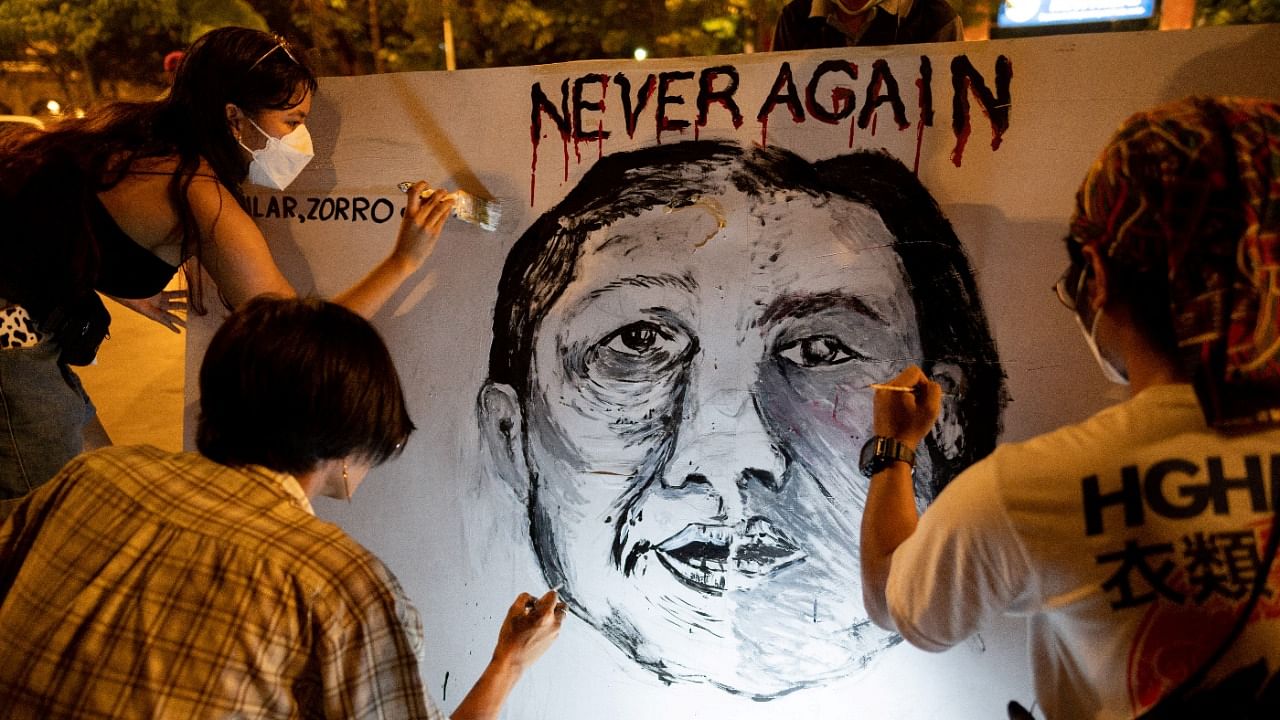
In February 1986, President Ferdinand Marcos was deposed and flew into exile with his family. He had ruled the Philippines for 21 years and had given up power and the riches it brought his family when the citizens of the country came right up to his palace. Among the things his family left behind were the alleged 3,000 pairs of shoes which belonged to his wife, Imelda Marcos. They carried away millions of dollars and several bags filled with bars of gold. His legacy was tarnished forever, and the Marcos were destined never to return to the country, leave alone return to power.
But as Sir Arthur Conan Doyle once said, the windmills of the gods grind slow, but they grind exceedingly small. And so, the tarnished legacy of Ferdinand Marcos has washed away, with a bit of help from social media and the strongman, the outgoing president, Rodrigo Duterte. The elections, whose results were announced earlier this week, have contributed to consolidating two dynasties, the Marcos and the Duterte. The outgoing president's daughter, Sara Duterte, has been anointed the Vice President, while the main prize, a six-year presidency, has gone to Bong Bong Marcos (BBM), the pseudonym apparently chosen so that his real name does not hark back to his father's times.
Duterte leaves behind an economy in shambles, but like his fellow strongmen, he blames it on the pandemic, saying this is something the Philippines shares with many other countries. Strongmen like Duterte have used the pandemic and lockdowns to push their agendas forward, jail political opponents, overcrowd their prisons and violate the human rights of their citizens. These are the larger challenges that the Philippines faced under Duterte's presidency. It's standing on the world stage is completely tarnished, and it will be some time before it can assert itself on the world stage. This was perhaps why the Nobel Prize committee wanted to draw the world's attention to the Philippines by awarding journalist Maria Ressa the Nobel Peace Prize.
We must note that Duterte is the most popular politician in the Philippines and had the influence to change things for any presidential candidate. Statista reports that 55 per cent of the men and 52 per cent of the Filipino women supported Duterte, even during his last days as the president. If the constitution could be altered, he could have easily won another term.
The anti-drug campaign is what Duterte would like to be known for, and that's probably his only legacy. However, the way extrajudicial killings had been carried out in the six years of his presidency, cases of human rights violations have been raised by international organisations like the Human Rights Watch. He has been consistently criticised on the international stage, including US presidents like Barack Obama. While he likened himself to Donald Trump and Adolf Hitler, we all know what they are remembered for, if at all. It's safe to say that Duterte will be recalled for all the wrong reasons, and the only lesson his rule can teach us is how not to rule a country. He leaves the Philippines prisons to become the second most overcrowded in the world.
Maria Leonor "Leni" Gerona Robredo, the outgoing vice president, had been hounded by the Duterte government and could have been the leader the Philippines needed. She is credited with defeating Bong Bong Marcos (BBM) six years ago and has wide acceptance. She may have lost the current race, but public support for her can make things difficult for BBM. She is an internationally acclaimed politician, who is also well educated, and understands the importance of gender equality for the country's growth.
The Philippines right now is in the throes of an economic mess, having been looted by its rulers for the past many years. This is probably emblematic of any country where the ruling class is more interested in staging a comeback than ensuring that the social welfare programmes reach those in need.
The new president will need to steer the country from the mess in the wake of the ongoing pandemic. One of the priorities would be to reduce the unemployment rate, which currently stands at 10.35 per cent. Rodrigo Duterte, presenting himself as a regular citizen, had promised to rid his voters of their common ills. Instead, he had focused on eliminating his opponents, which numbered hundreds of thousands. This brings me to the second priority of the next president. He will need to elevate the standards of human rights in the country so the businesses can attract foreign investment. Reducing Corruption might be another priority for the new government – the Philippines currently ranks 115 out of 180 countries on the corruption index. The rising population, projected to grow at 21 per cent during 2020-30, is another challenge that should be the new president's focus.
Political analysts opine that the de facto ruler in the new government would be Imelda Marcos, the dictator's widow who has worked over the past 35 years to bring her family not only back to the Philippines but back to power. While this comeback story seems to be scripted for celluloid, the Filipino citizens will have to bear the brunt of this ascendance. It's time for history to rewrite itself—all hail BBM.
(The author is a former Chief of Communications with the United Nations in New York, where he worked for more than a decade.)
(Disclaimer: The views expressed above are the author's own. They do not necessarily reflect the views of DH.)